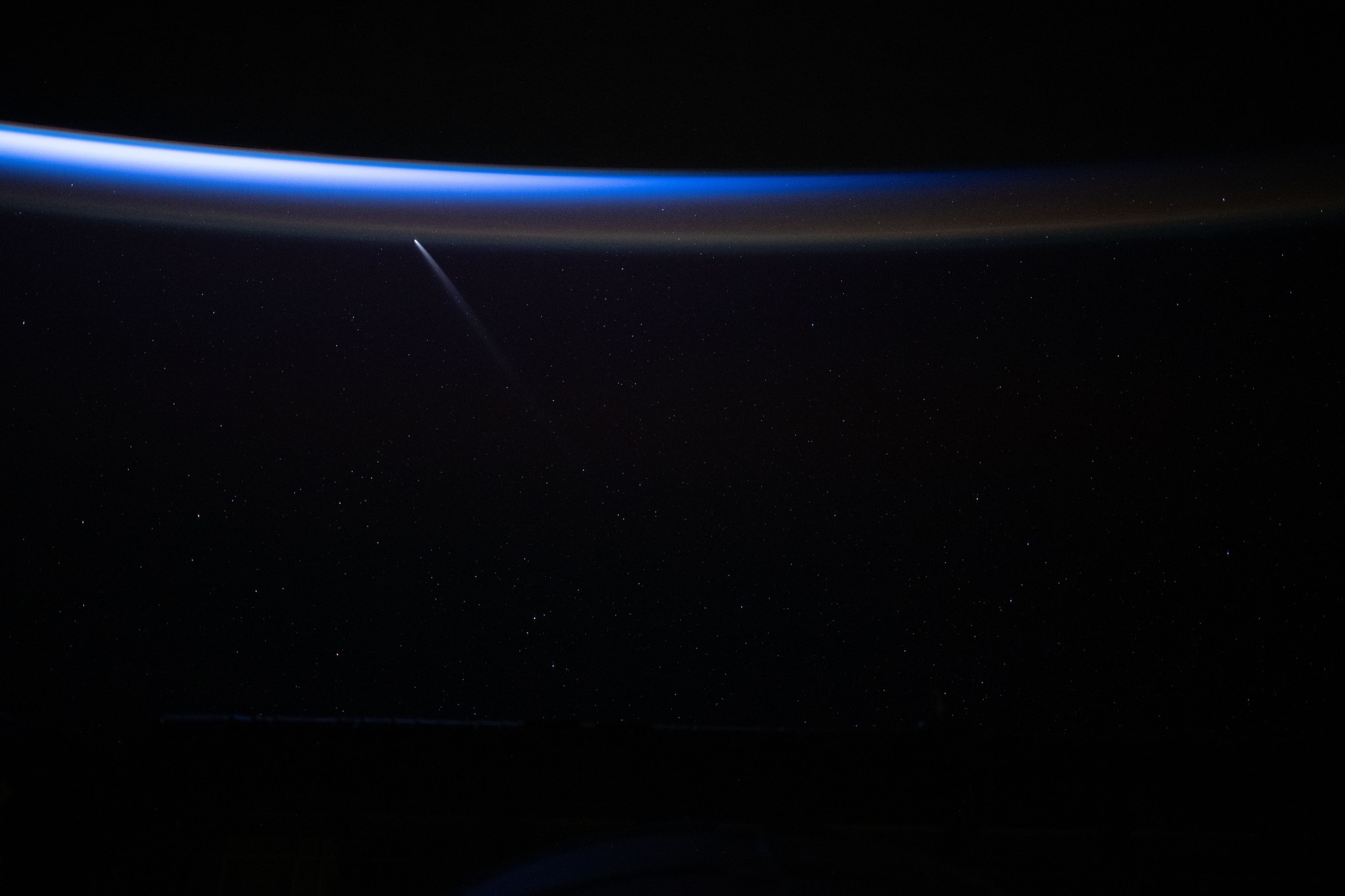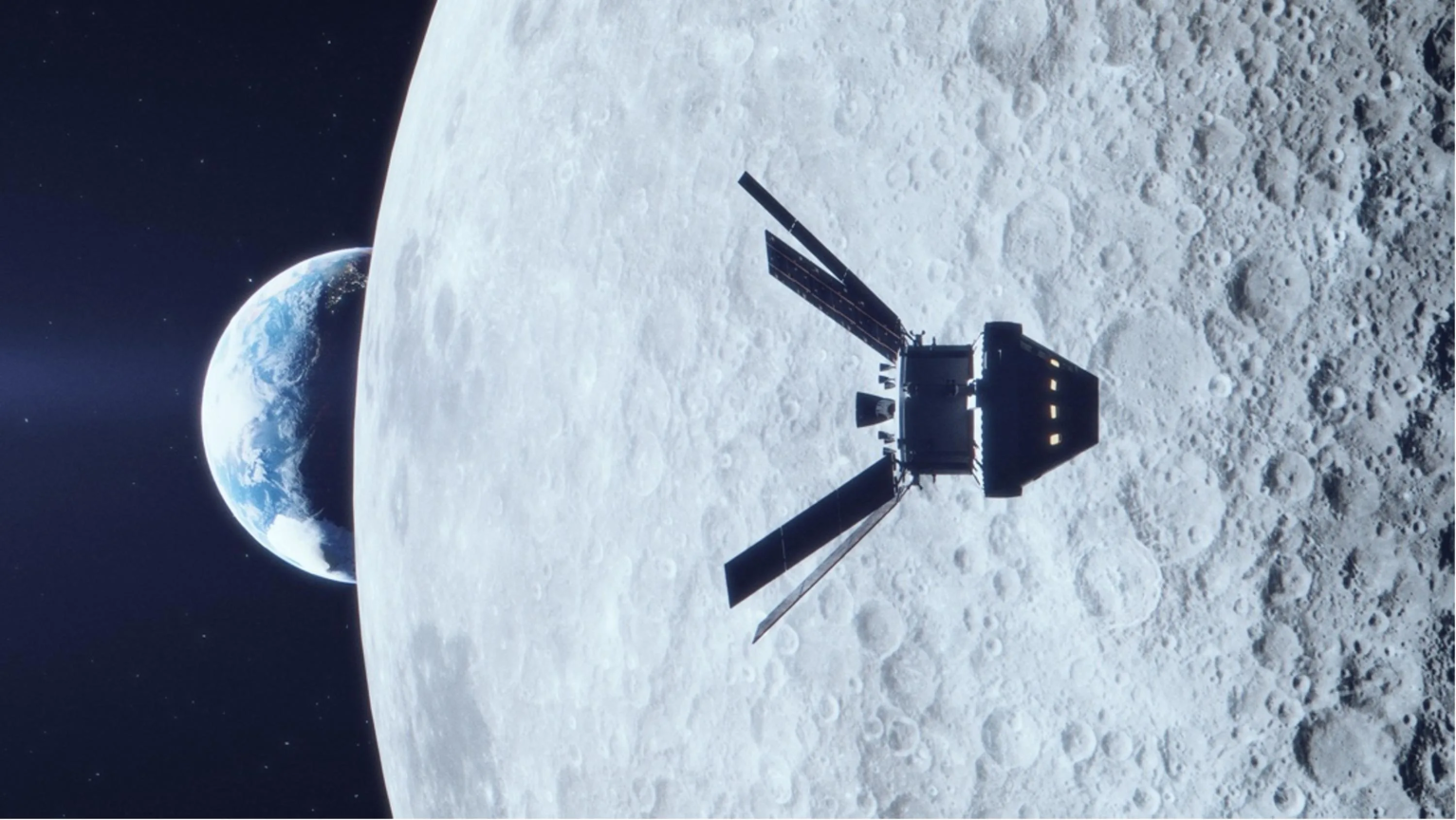NASA astronaut Matthew Dominick captured this timelapse photo of Comet C/2023 A3 (Tsuchinshan-ATLAS) International Space Station as it orbited 272 miles above the South Pacific Ocean southeast of New Zealand just before sunrise on Sept. 28, 2024. At the time, the comet was about 44 million miles away from Earth.
Though the comet is very old, it was just discovered in 2023, when it approached the inner solar system on its highly elliptical orbit for the first time in documented human history. Beginning in mid-October 2024, Comet C/2023 A3 (Tsuchinshan-ATLAS) will become visible low in the west following sunset. If the comet’s tail is well-illuminated by sunlight, it could be visible to the unaided eye. Oct. 14-24 is the best time to observe, using binoculars or a small telescope.
The comet hails from the Oort Cloud, which scientists think is a giant spherical shell surrounding our solar system. It is like a big, thick-walled bubble made of icy pieces of space debris the sizes of mountains and sometimes larger. The Oort Cloud lies far beyond Pluto and the most distant edges of the Kuiper Belt and may contain billions, or even trillions, of objects.
Image Credit: NASA/Matthew Dominick
from NASA https://ift.tt/785QnZG



No comments:
Post a Comment